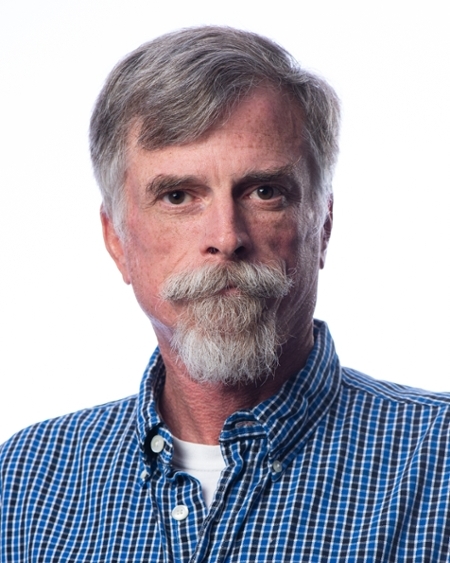Paul Beezley
Paul Beezley
Associate Professor of History
 |
Professor Beezley holds a Ph.D. and Masters degrees from The University of Mississippi, and a BS from Appalachian State University. Professor Beezley is a cultural historian with a special interest in the New South and the turn-of-the-century United States. He teaches a variety of classes in the era between the end of the War of Rebellion and the start of the Second World War, African-American History, and Mexico since Independence. Professor Beezley is also the advisor for upper classmen history majors. Please contact him via e-mail to make an appointment to discuss your class schedule, progress towards your degree, and for clearance to register. |
Classes Taught:
| HY 534 |
American Social and Cultural History since 1865 (Graduate): Investigate the techniques and historiography of cultural history; read on topics such as advertising, monuments, museums, and exhibitions. |
| HY 437/G | Black America: Concentrates on slavery, segregation, and the Civil Rights Movement. |
| HY 434 | American Social and Cultural History since 1865. |
| HY481/G | Mexico Since Independence: an overview of Mexico from 1820 to the present. |
| HY 454/G | The Making of Modern American: Explores the New South, industrialization, segregation, populism the progressives and the Great War. |
| HY 455/G | The 1920s and The Great Depression: looks at the rise of the modern consumer society in the United States, and the great crisis in both democracy and capitalism. |
Areas of Interest:
World's Fairs and Exhibitions:
Beezley's dissertation, Exhibiting the New South: Mississippi's exhibits at the World' Fairs, 1884 - 1904 examines the items Mississippi sent to four fairs. Through these exhibits one can see how initially white men, white women, and blacks each wanted to display themselves to the world, and how by 1904, white men alone controlled the displays. This allows the exhibits to reflect how the New South elite imagined a perfected society in 1904. The overall look demonstrates the changes southerners went through as they re-imagined the region following the disastrous war of rebellion.
Funerals and Civic Religion:
Of particular interest is how funerals can reflect the mental state and world view of various groups and their civic religion. Funerals of notables, such as President McKinley, U. S. Grant, and Jefferson Davis created special moments in time outside the normal rhythms of life for large sections of the nation, thus making them particularly memorable. The rituals of burial themselves provided the opportunity for individuals to renew their allegiance and devotion to various ideals, but they also served as an initiation for children into the values and world view of the large group.
Memory:
One of the most interesting and popular areas of current research is how people remember events, how that memory can be altered, and how those memories can be used to bolster various groups. Ten different people witnessing the same event can walk away with ten different interpretations of that event, and very soon have ten completely different memories. Studies already show that many people mis-remember the events of September 11th. The way the Civil War is remembered, and the various ways it's been used by different groups to bolster their power is of primary interest to Dr. Beezley.
Speaking Topics:
Dr. Beezley is pleased to present a paper on either the Davis funerals or the turn-of-the-century Worlds Fairs to groups in the community. Please contact him via e-mail or through the History Department.
Publications:
Dr. Beezley's published work includes a variety of microfilm guides in the FBI Files collection, and a chapter on James Vardaman in the forthcoming volume The Human Tradition in the Civil Rights Movement.

